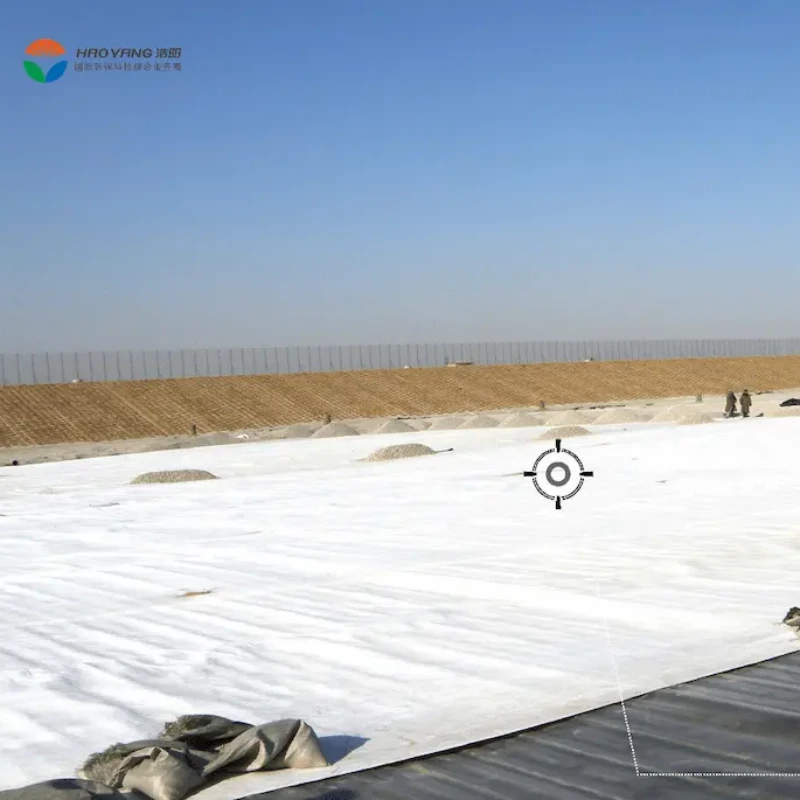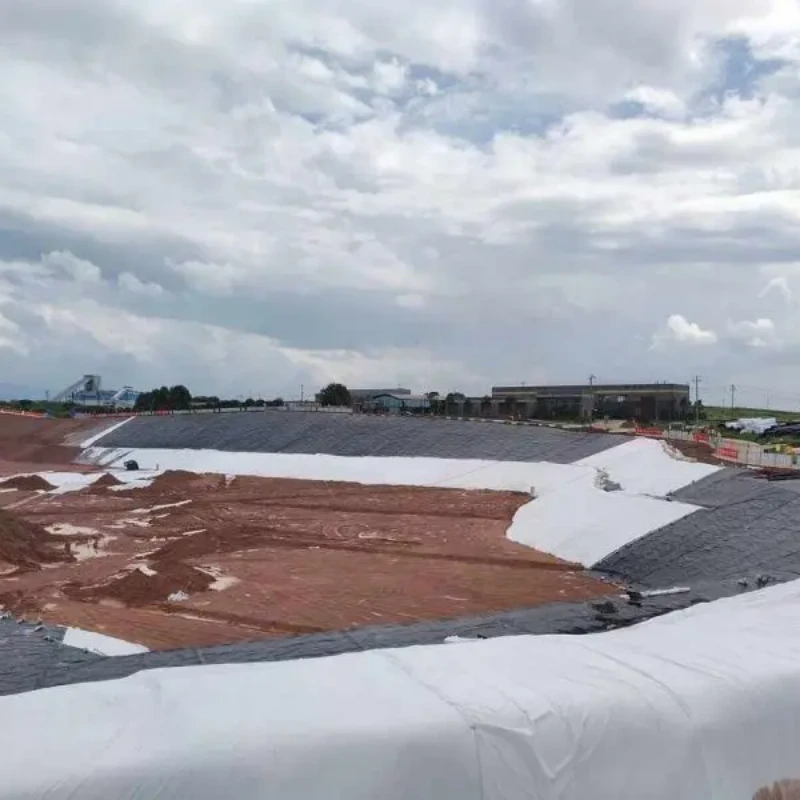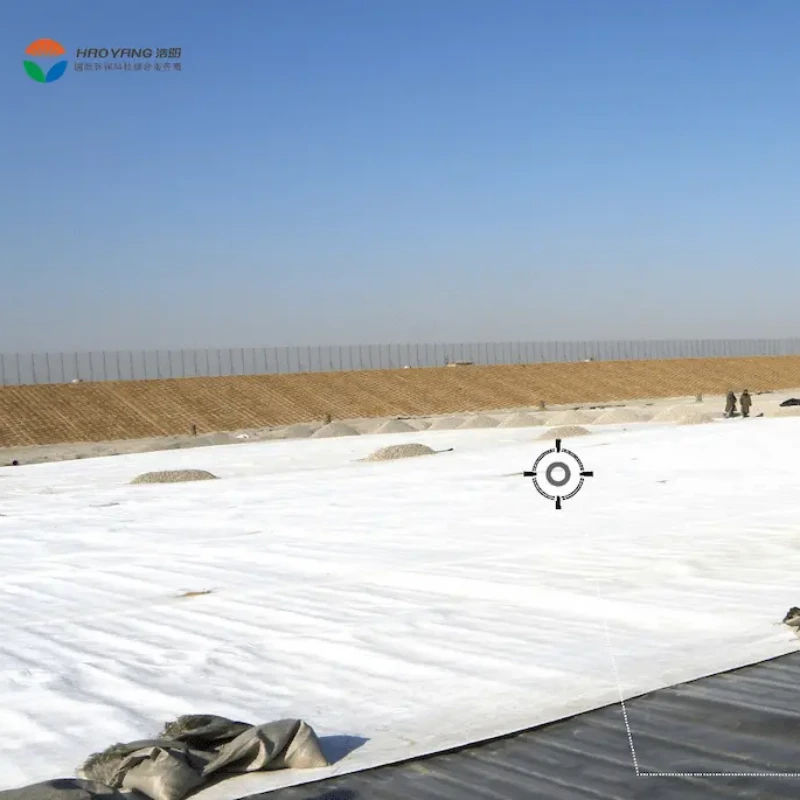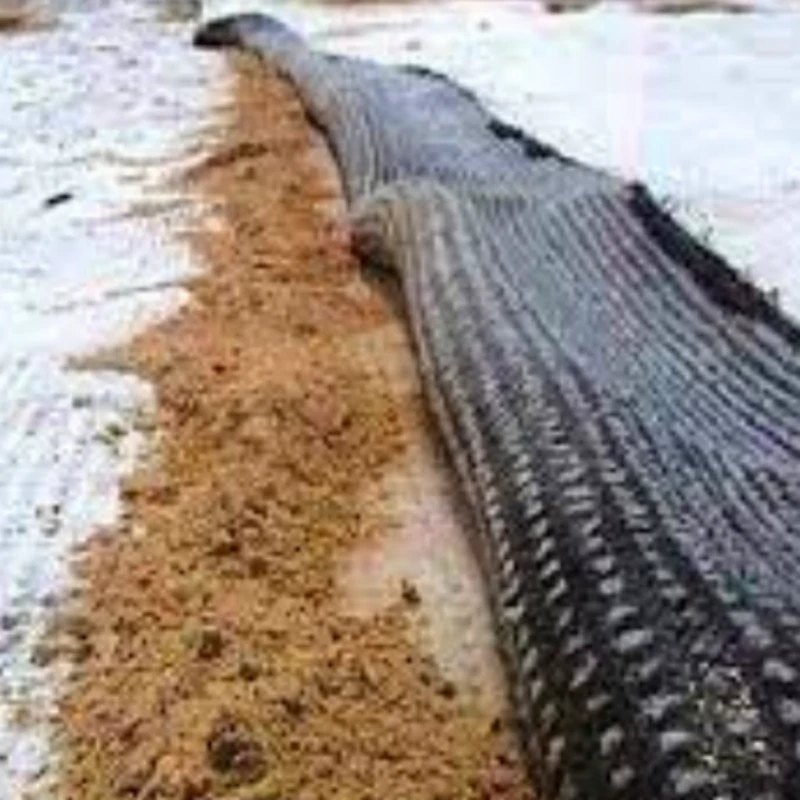Sodium Bentonite Clay Uses
Sodium Bentonite Clay, often referred to as "Montmorillonite," is a versatile natural clay known for its ability to absorb and swell. This unique property makes it a popular choice across various industries, from construction and agriculture to pharmaceuticals. In this article, we will explore the diverse uses of sodium bentonite clay, backed by market data, research findings, and practical insights. Whether you need solutions for waterproofing, drilling, or personal care, sodium bentonite clay could be the key.
What is Sodium Bentonite Clay?
Sodium Bentonite Clay is primarily composed of montmorillonite, a smectite clay mineral. It is recognized for its remarkable swelling capacity, which allows it to absorb multiple times its weight in water. When hydrated, it forms a gel-like sealant, making it valuable for various sealing and binding applications.
Global Market Insight:According to a report by Market Research Future, the global bentonite market was valued at approximately USD 1.4 billion in 2022 and is projected to reach USD 1.9 billion by 2030, growing at a CAGR of 4.6%. The increasing demand for drilling fluids, coupled with rising applications in agriculture and construction, drives this growth.

Sodium Bentonite Clay Specifications Table
Here is a detailed Specifications Table for Sodium Bentonite Clay, covering technical, physical, and size specifications:
Sodium Bentonite Clay: Technical Specifications Table
| Specification | Details |
|---|---|
| Chemical Composition | Sodium montmorillonite (Al2O3·4(SiO2)·H2O) |
| pH Value | 8.5 - 10.5 |
| Moisture Content | 8% - 15% |
| Cation Exchange Capacity (CEC) | 70 - 120 meq/100g |
| Swelling Capacity | 25 - 30 times in volume when mixed with water |
| Bulk Density | 0.8 - 1.0 g/cm³ |
| Water Absorption Capacity | 500% - 800% of its weight |
| Thermal Stability | Up to 250°C |
| Specific Surface Area | 400 - 800 m²/g |
| Sieve Analysis | 90% passing 200 mesh (75 µm) |
Sodium Bentonite Clay: Physical Specifications Table
| Property | Value |
|---|---|
| Color | Light to dark gray |
| Form | Powder, granules, or fine particles |
| Odor | Odorless |
| Solubility in Water | Insoluble (swells in contact with water) |
| Melting Point | 1,300 - 1,400°C |
| Particle Shape | Flaky or platy |
Sodium Bentonite Clay: Size Specifications Table
| Grade | Particle Size Range |
|---|---|
| Powdered Form | 75 - 200 mesh (75 µm to 180 µm) |
| Granular Form | 12 - 30 mesh (600 µm to 1700 µm) |
| Fine Granular Form | 30 - 50 mesh (300 µm to 600 µm) |
These specifications will help identify the right type of Sodium Bentonite Clay for applications like drilling, sealing ponds, lining landfills, or in cosmetic uses, depending on its chemical and physical properties.
Industrial Uses of Sodium Bentonite Clay
Sodium bentonite clay has several industrial applications due to its unique properties. Below are some of the primary uses:
a. Drilling Fluids
In the oil and gas industry, sodium bentonite clay is essential for drilling fluids, also known as "muds." It acts as a viscosifier and fluid loss control agent, stabilizing the borehole and minimizing fluid loss during the drilling process. Sodium bentonite’s swelling capability ensures efficient removal of cuttings and provides lubrication for the drill bit.
Industry Data:
The oil & gas sector accounted for over 35% of the total sodium bentonite demand in 2022.
Bentonite-based drilling fluids help save 20-30% on drilling costs by reducing equipment wear and enhancing borehole stability.
b. Geotechnical and Environmental Sealing
Sodium bentonite is used for creating natural barriers to prevent water and chemical leakage, making it suitable for landfill liners, hazardous waste containment, and pond sealing. It is highly effective at blocking contaminants from leaching into groundwater, thus ensuring environmental safety.
Market Example:
The U.S. Environmental Protection Agency (EPA) has approved the use of bentonite liners for landfill sites due to their effectiveness in preventing contaminant seepage.
Sodium bentonite liners are 3-5 times more cost-effective than synthetic liners, making them a preferred choice for large-scale projects.
Agricultural Uses of Sodium Bentonite Clay
In agriculture, sodium bentonite clay plays a vital role due to its ability to enhance soil properties and improve animal feed quality.
a. Soil Amendment
Farmers use sodium bentonite as a soil conditioner. It improves the water-holding capacity of sandy soils, prevents erosion, and helps retain essential nutrients in the root zone. This leads to better crop yields and reduces irrigation requirements, particularly in arid regions.
Agricultural Data:
Research by the International Soil Conservation Organization showed that bentonite application improved water retention by 30% in sandy soils, reducing water usage by 20%.
Bentonite-amended soils have shown a 15% increase in crop yield on average, according to studies conducted in India.
b. Livestock Feed Additive
Sodium bentonite is often added to animal feed as a binder. It helps in the pelletizing process, reducing dust and improving feed intake. Moreover, it acts as a detoxifying agent, binding toxins and heavy metals, thus promoting better digestion and overall health in livestock.
Industry Insight:
A study published in the Journal of Animal Science found that adding 2% sodium bentonite to cattle feed improved digestion efficiency by 12% and reduced toxin absorption by 40%.
Bentonite is also a key ingredient in poultry feed, where it aids in moisture control, making it easier to manage feed and maintain farm hygiene.

Environmental and Construction Uses
The versatile properties of sodium bentonite clay extend to various environmental and construction applications, proving to be an effective solution for water and soil management.
a. Waterproofing and Pond Sealing
Due to its superior water absorption and swelling properties, sodium bentonite clay is widely used for pond liners, canals, and other water management projects. When hydrated, it forms a gel-like barrier that effectively prevents water seepage, making it a cost-effective and eco-friendly waterproofing solution.
Case Study:
In California, bentonite clay was used to seal a 10-acre pond, significantly reducing water loss by 95%. The project saved the owners approximately $50,000 compared to alternative synthetic liners.
Sodium bentonite is a preferred choice for farmers and municipalities due to its easy application and maintenance.
b. Foundation Waterproofing
In the construction industry, sodium bentonite is utilized to waterproof building foundations. It is especially effective in areas prone to groundwater seepage. When mixed with cement, bentonite enhances the flexibility and sealing properties, ensuring long-term water resistance.
Construction Data:
According to a report by Construction World, bentonite-based waterproofing systems are up to 30% cheaper than traditional methods, with a lifespan exceeding 20 years.
Bentonite applications in the construction sector are projected to grow by 5.2% annually, driven by increasing infrastructure projects globally.
Sodium Bentonite Clay Compare to Calcium Bentonite Clay
Sodium bentonite and calcium bentonite are two common types of bentonite clay, each with distinct properties and uses. Here’s how they compare:
Chemical Composition and Swelling Ability:
Sodium Bentonite: Sodium bentonite has a higher content of sodium ions, which gives it a remarkable ability to absorb water and swell. It can expand up to 15-18 times its original volume when exposed to moisture. This makes it ideal for applications that require water absorption and sealing, such as in drilling muds, pond liners, and environmental containment systems. For example, in oil and gas drilling, sodium bentonite is preferred for its ability to form a stable slurry that prevents fluid loss and maintains borehole integrity.
Calcium Bentonite: Calcium bentonite, on the other hand, contains a higher amount of calcium ions. It does not swell as much as sodium bentonite but is known for its absorbent and purifying properties. This makes it more suitable for personal care and cosmetic products, such as face masks and detoxification treatments. Calcium bentonite can absorb oils, toxins, and impurities, making it effective for cleansing and detox purposes.
Applications:
Industrial Uses: Sodium bentonite is the go-to choice for industrial uses that require sealing, absorption, and thickening. It is widely used in the construction of landfills, where it acts as a barrier to prevent leachate from contaminating groundwater. Its use in drilling fluids helps stabilize boreholes during oil and gas exploration. Additionally, sodium bentonite is used in foundry sands, cement, and concrete production to improve binding properties.
Cosmetic and Health Uses: Calcium bentonite is often marketed as “healing clay” due to its skin detoxification benefits. It is less likely to cause swelling when mixed with water, making it ideal for topical applications. People use calcium bentonite to treat acne, eczema, and other skin conditions. It is also used in products designed for internal detoxification because it can absorb toxins in the digestive tract without causing significant swelling.
Pricing and Availability:
Cost: Sodium bentonite tends to be more expensive due to its superior swelling and sealing abilities. It is often mined in large quantities, especially in the U.S. and Turkey, and exported worldwide for industrial applications. Calcium bentonite, being less specialized, is typically more affordable and is sourced from various global locations, including the U.S., India, and Europe.
Availability: Both types of bentonite are widely available, but sodium bentonite is more commonly found in industries, whereas calcium bentonite is prevalent in health and beauty stores.
In conclusion, the primary difference between sodium and calcium bentonite is their chemical composition and physical properties. Choosing between the two depends on the intended application—sodium bentonite for industrial sealing and swelling, and calcium bentonite for skin care and health-related uses.
The Environmental Benefits of Using Sodium Bentonite Clay
Sodium bentonite clay offers several environmental benefits, making it a sustainable choice for various applications. Here are some of its key environmental advantages:
Eco-Friendly Water Management:
Natural Pond Sealing: One of the most significant environmental uses of sodium bentonite is in creating natural pond liners. When spread over the bottom of a pond or water body, bentonite clay forms a seal that prevents water from seeping out. Unlike synthetic liners, which can degrade over time and introduce plastic residues into the environment, sodium bentonite is a natural mineral that poses no harm to aquatic life. According to studies, ponds sealed with bentonite can retain water levels more consistently, which helps preserve local ecosystems.
Erosion Control: In agricultural and construction projects, sodium bentonite is used to prevent soil erosion. By stabilizing the soil and reducing the risk of water runoff, it helps maintain the natural landscape and supports sustainable land management practices.
Waste Management and Pollution Control:
Landfill Liners: Sodium bentonite plays a crucial role in managing waste disposal sites. Its ability to absorb and swell makes it an excellent material for lining landfills. When used as a liner, bentonite prevents leachate (a liquid generated from waste) from seeping into the surrounding soil and groundwater, reducing the risk of environmental contamination. This method has been widely adopted across the world due to its cost-effectiveness and environmental safety.
Containment of Hazardous Materials: In addition to landfills, sodium bentonite is also used to contain hazardous materials and pollutants. It is employed in the construction of containment ponds and slurry walls to prevent chemicals and industrial waste from spreading into the environment. Bentonite’s sealing properties create an effective barrier that minimizes the environmental impact of hazardous materials.
Sustainable Agriculture:
Soil Improvement: Sodium bentonite can improve soil quality, leading to better crop yields without relying on chemical fertilizers. It enhances the soil's water retention capabilities, ensuring that plants receive adequate moisture even during dry periods. This helps farmers reduce their water usage, which is particularly beneficial in regions facing water shortages.
Non-Toxic Alternative: As a natural mineral, sodium bentonite is non-toxic and safe for use in organic farming. Unlike some chemical-based soil additives, it does not introduce harmful substances into the environment. This makes it a preferred choice for farmers who aim to maintain sustainable, eco-friendly practices.
Overall, sodium bentonite’s ability to act as a natural sealant and absorbent makes it an environmentally friendly solution for water management, waste containment, and sustainable agriculture. Its use supports various eco-conscious practices, promoting a balance between industrial needs and environmental preservation.

Conclusion
Sodium Bentonite Clay is a highly versatile and practical material with applications spanning multiple industries. From drilling and construction to agriculture, cosmetics, and health, it provides effective and environmentally friendly solutions. Understanding its benefits, supported by factual data and real-world examples, allows industries and consumers alike to make informed decisions. If you’re considering sodium bentonite clay for your next project or health routine, make sure to choose high-quality, reliable products from trusted suppliers.
Choose Haoyang Environmental Co., Ltd. for Premium Sodium Bentonite Clay Solutions
Established in 2008, Haoyang Environmental Co., Ltd. (Haoyang) is a leading provider in the field of geosynthetic materials and environmental engineering. With a strong focus on innovation and quality, Haoyang specializes in research and development, manufacturing, consulting, and design for various environmental solutions, including sodium bentonite clay applications.
Haoyang’s commitment to excellence is evident through its numerous certifications, including ISO 9001, ISO 14001, and OHSAS 18001, as well as CQC environmental product certification. Recognized as a "Shandong Enterprise Technology Center" and an "Environmental Protection New Materials Engineering Laboratory", Haoyang boasts a dedicated R&D team that works on cutting-edge environmental engineering materials and pollution control technologies. The company holds three invention patents and 32 utility model patents, along with two provincial-level scientific and technological achievement certifications, ensuring that its products meet the highest standards of quality and reliability.
Why Choose Haoyang for Your Sodium Bentonite Needs?
High-Quality Products: Haoyang’s sodium bentonite clay products are manufactured to meet rigorous quality standards, ensuring superior performance for industrial, agricultural, and environmental applications.
Technical Expertise: With over 15 years of experience, Haoyang’s professional technical R&D team ensures continuous innovation and improvement, providing tailored solutions to meet specific project requirements.
Environmental Responsibility: As a company dedicated to sustainable practices, Haoyang prioritizes the development of environmentally friendly products that contribute to safe and effective pollution control and environmental governance.
For more information on our sodium bentonite clay products and how they can benefit your projects, contact Haoyang Environmental Co., Ltd. today. Let us help you find the perfect solution for your industrial, agricultural, or environmental needs.
Discover the power of sodium bentonite clay with Haoyang’s innovative solutions. Reach out to us now to learn more!

897.webp)
942.webp)
237.webp)